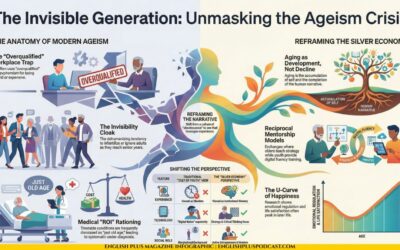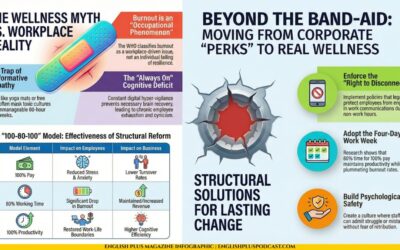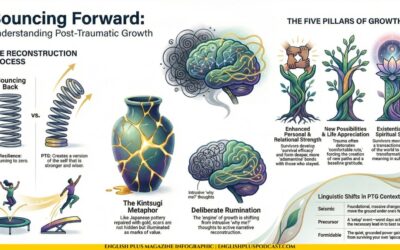Introduction
Homelessness is a pervasive social issue that affects communities across the globe. Despite its prevalence, the causes and consequences of homelessness are often overlooked, leaving thousands of individuals and families without the support they need to escape their predicament. In this article, we will explore the factors contributing to homelessness in our communities, the challenges faced by those affected, and potential solutions that can be implemented at both the individual and government levels.
Understanding Homelessness
Homelessness is not a one-dimensional issue. It is a complex social problem that is rooted in economic, political, and personal factors. Some of the leading causes of homelessness include lack of affordable housing, unemployment, domestic violence, mental health issues, and substance abuse. Additionally, systemic issues such as inadequate social safety nets and the criminalization of homelessness further exacerbate the problem.
Lack of Affordable Housing
A lack of affordable housing is one of the main drivers of homelessness. As housing costs continue to rise, many individuals and families are unable to secure stable, long-term housing. This can result in a cycle of eviction, temporary housing, and homelessness. It is essential for communities to prioritize the development of affordable housing options and provide rental assistance programs to help combat this issue.
Unemployment and Underemployment
Unemployment and underemployment are also significant contributors to homelessness. When individuals lose their jobs or are unable to find work that pays a living wage, they may struggle to cover basic living expenses, including rent or mortgage payments. Job training and placement programs, as well as initiatives that promote living wage employment, are critical to addressing this aspect of homelessness.
Domestic Violence
Domestic violence is another common factor that leads to homelessness. Survivors of domestic violence may be forced to leave their homes to escape abuse, often with limited resources and support. Communities must prioritize the development of safe and accessible shelters and support services for survivors of domestic violence to help them regain stability and independence.
Mental Health Issues and Substance Abuse
Mental health issues and substance abuse can both contribute to and be a result of homelessness. Individuals struggling with these issues often face barriers to accessing stable housing and employment, which can lead to homelessness. To address this, communities should invest in mental health and addiction treatment services and provide supportive housing options for those in need.
Systemic Issues
Systemic issues such as inadequate social safety nets and the criminalization of homelessness perpetuate the problem. Policies that penalize homelessness, such as laws that prohibit panhandling or sleeping in public spaces, only serve to push homeless individuals further to the margins of society. Instead, governments should focus on addressing the root causes of homelessness and providing comprehensive support services for those affected.
Challenges Faced by Homeless Individuals
Homeless individuals face numerous challenges that make escaping homelessness incredibly difficult. These challenges include limited access to healthcare, education, and employment opportunities, as well as the stigma and discrimination often associated with being homeless.
Limited Access to Healthcare
Homeless individuals often struggle to access medical care, which can exacerbate existing health issues and contribute to the development of new ones. Communities should invest in healthcare services tailored to the unique needs of homeless individuals, including mobile clinics and specialized care providers.
Barriers to Education and Employment
Homelessness can create significant barriers to education and employment. Children experiencing homelessness often struggle to succeed academically due to frequent school changes, lack of resources, and the stress associated with housing instability. Similarly, homeless adults may find it difficult to secure employment due to lack of a permanent address, limited access to transportation, and the stigma associated with homelessness. To address these barriers, communities should invest in targeted educational support for homeless children and employment assistance programs for adults.
Stigma and Discrimination
The stigma and discrimination faced by homeless individuals can have a profound impact on their mental health and well-being. These negative attitudes can create additional barriers to accessing housing, employment, and social support. Raising public awareness about the complex factors contributing to homelessness and promoting empathy and understanding are critical steps toward reducing stigma and discrimination.
Solutions to Combat Homelessness
Tackling homelessness in our communities requires a multifaceted approach that addresses the root causes of the issue and provides comprehensive support for those affected. Some potential solutions include:
Increase Affordable Housing Options
Increasing the availability of affordable housing is essential to preventing and addressing homelessness. This can be achieved through initiatives such as rent control, inclusionary zoning, and the development of affordable housing units. Additionally, rental assistance programs can help prevent homelessness by providing financial support to those struggling to pay rent.
Invest in Support Services
Investing in support services for homeless individuals and families, including mental health and substance abuse treatment, healthcare, and education, is critical to helping them regain stability and independence. Communities should prioritize the development of comprehensive, easily accessible support services tailored to the unique needs of homeless individuals.
Implement Housing First Policies
Housing First is an evidence-based approach to addressing homelessness that prioritizes providing stable, long-term housing to those in need, without preconditions or barriers. This approach recognizes that individuals are better equipped to address their other challenges, such as employment and healthcare, when their basic housing needs are met. Communities should consider implementing Housing First policies and programs to help reduce homelessness and promote long-term stability.
Strengthen Social Safety Nets
Strengthening social safety nets is crucial for preventing and addressing homelessness. This includes providing adequate unemployment benefits, disability support, and financial assistance for low-income individuals and families. By strengthening these support systems, communities can help mitigate the risk of homelessness for those facing financial hardship or other challenges.
Decriminalize Homelessness
Decriminalizing homelessness is an essential step toward addressing the issue more effectively. Instead of penalizing homeless individuals for their circumstances, governments should focus on implementing policies and programs that address the root causes of homelessness and provide support for those affected.
Conclusion
Homelessness is a complex and pervasive issue that demands the attention and action of individuals and governments alike. By understanding the factors that contribute to homelessness, the challenges faced by those affected, and potential solutions, we can work together to create more inclusive, supportive communities for all.
Keywords:
- Homelessness: The state of not having a stable, permanent place to live.
- Communities: Groups of people living in the same area or sharing common interests or characteristics.
- Affordable housing: Housing that is within the financial means of low-income individuals or families.
- Unemployment: The state of being without a job or work.
- Domestic violence: Violence or abuse within a domestic or family setting, often resulting in the victim being forced to leave their home.
- Mental health issues: Conditions that affect an individual’s mental state, including depression, anxiety, and schizophrenia.
- Substance abuse: The excessive use of drugs or alcohol, often leading to addiction and other negative consequences.
- Systemic issues: Issues that are ingrained in the system or structure of society, such as social safety nets and criminalization of homelessness.
- Healthcare: The maintenance and improvement of physical and mental health through medical services.
- Education: The process of acquiring knowledge, skills, and values through instruction or study.
- Stigma: Negative attitudes and stereotypes attached to a particular group or individual.
- Discrimination: Prejudice or unfair treatment based on characteristics such as race, gender, or social status.
- Rent control: Government regulation of the amount that landlords can charge for rent.
- Housing First: An evidence-based approach that prioritizes providing stable housing to individuals without preconditions or barriers.
- Social safety nets: Government programs that provide financial and other assistance to individuals and families facing hardship.










0 Comments